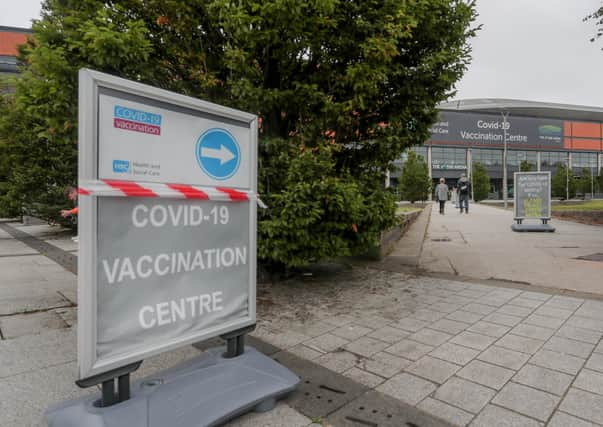Dr Esmond Birnie: Could incentives boost Covid vaccine uptake among young people?


On the other hand, the evidence is growing that vaccines do work and provide a wall against spread, hospitalisation and death.
But now we see that whereas in England 88% of adults have had at least one jab and 90% in both Scotland and Wales, the NI rate is 83% (as of July 28).
Advertisement
Hide AdAdvertisement
Hide AdVaccine reluctance or scepticism seems concentrated amongst the younger age groups. At the end of July only 59% of 18-29 year-olds in NI had received a vaccine.
The health minister’s proposal about adding a vaccination requirement to the high street stimulus cash cards was shot down in flames but it is time to have a conversation about the use of incentives to promote youth vaccination. It probably has to be something more substantial than the ice cream van which was outside the SSE Arena a few weeks ago.
There are two reasons for looking at incentives.
First, theory about human behaviour. There are always going to be some people who are a little bit fearful (even if irrationally so) about taking a vaccine or regard it as a bit inconvenient. A small cash incentive might be enough to nudge those people into taking a favourable decision.
Second, let’s look at what other countries are doing. Sweden is conducting a controlled experiment to see how effective cash incentives might be. Some Swedes will be given a £17 payment if they take a vaccine. President Biden has recommended that the states of the USA make $100 payments to vaccine-takers.
Advertisement
Hide AdAdvertisement
Hide AdSome of the states are already providing cash. California provided tickets for a lottery and Washington State gave away marijuana joints! In Moscow free cars were being raffled away to vaccine takers. The Scottish devolved government is now considering “appropriate incentive schemes”.
There are, of course, objections although it has to be said people would probably react even more negatively to the use of penalties against the unvaccinated such as they can’t work in certain jobs or receive certain services. One obvious objection is the need to use scarce public money. My response to that is that billions have already been spent in responding to Covid and this could be a case where with a relatively small amount of money there was genuine value of money in terms of the wider returns to society.
It might also be argued we are bribing people to do what they should do anyway.
The Cabinet Office Minister, Michael Gove recently said, people had a moral duty to take the vaccine because in so doing they were helping not only themselves but, ultimately, also their neighbour.
Advertisement
Hide AdAdvertisement
Hide AdHe was right that people should do “the right thing to do” but the practical problem is that some are choosing not to. That’s where incentives come into play.
As Archbishop William Temple wrote in 1942:“The art of government in fact is the art of so ordering life that self-interest prompts what justice demands.”
• Dr Esmond Birnie is senior economist at the Ulster University Business School